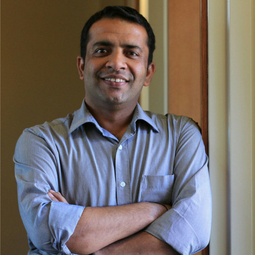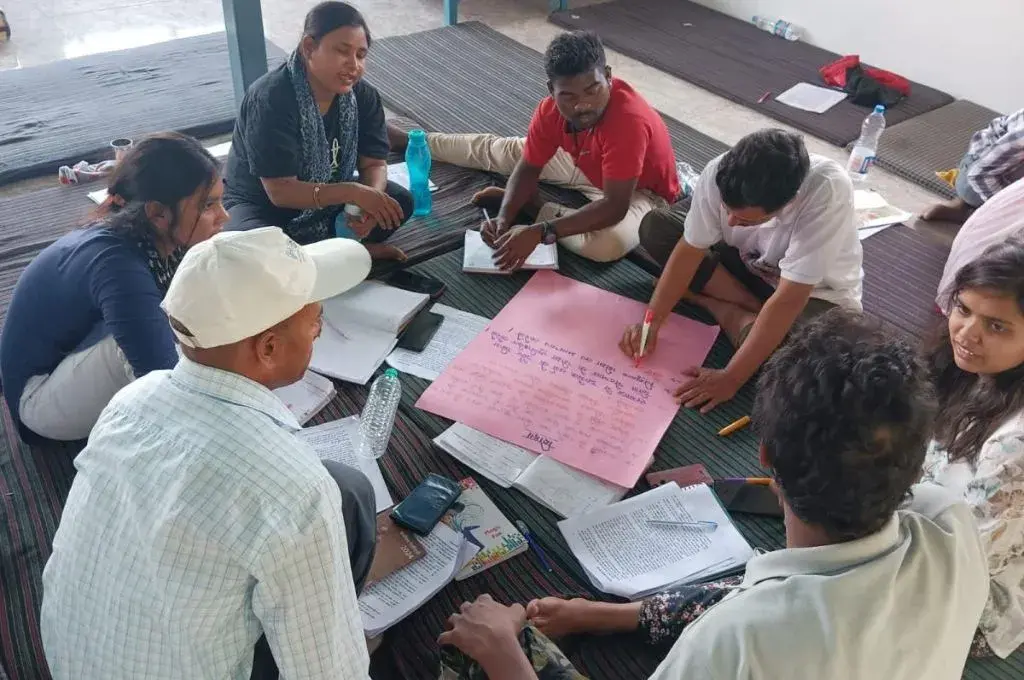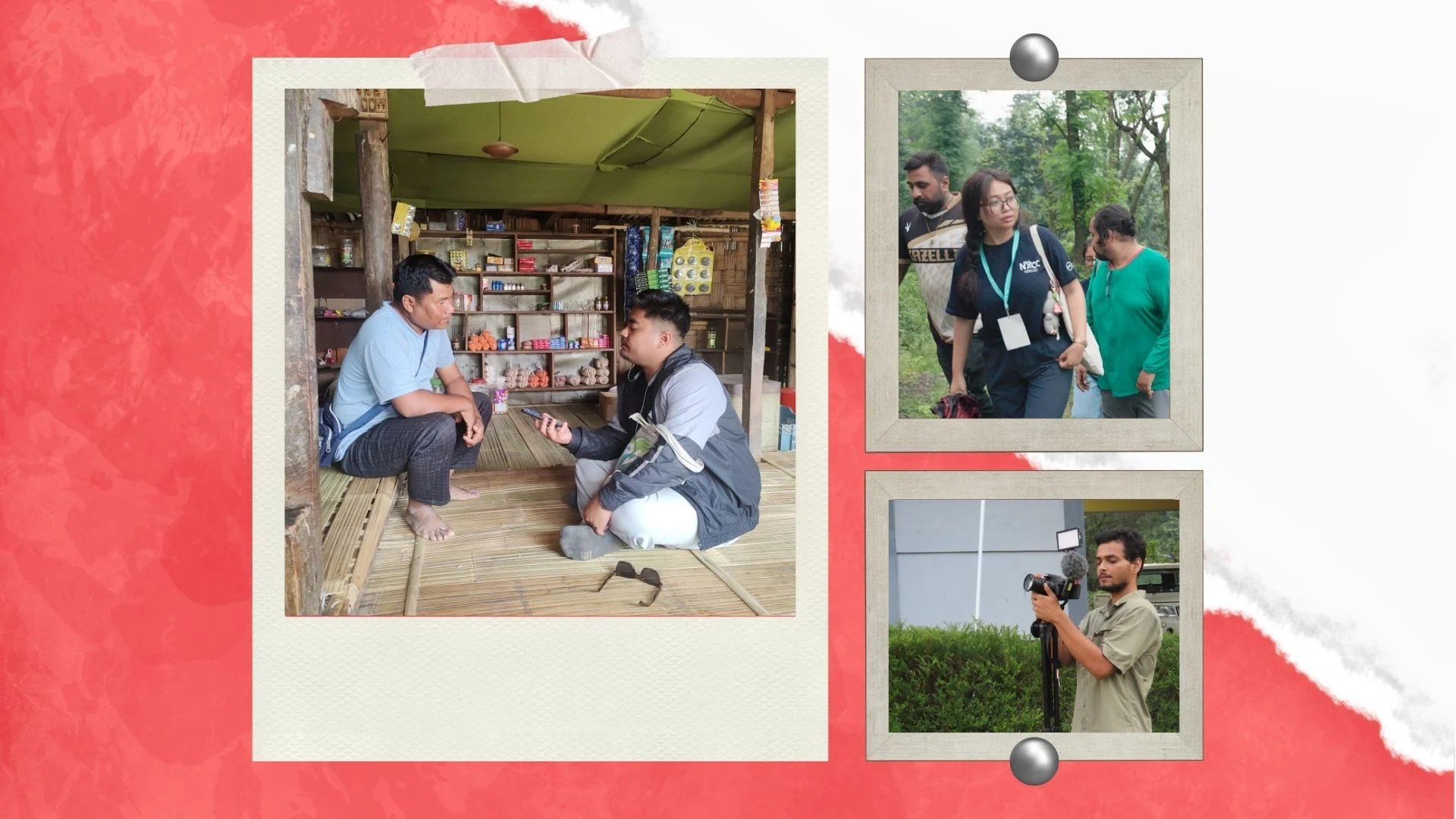Growth is one of the key metrics people use to measure the success of nonprofits. Be it in terms of organisational size, output, impact, or area of work–our desire for growth makes us focus our attention on achieving targets. And in doing so, we run the risk of losing the essence on which our organisations were built.
Our desire for growth makes us focus our attention on achieving targets. And in doing so, we run the risk of losing the essence on which our organisations were built.
At Goonj, we have grown in size—from distributing 67 items of personal clothing in 1999, to over six million kilograms of material being distributed annually today. We have a team of about 900 full-time team members and volunteers, and we work in 23 states. And through all of it, I believe we have strived to maintain, in everything that we do, the essence that we started off with.
Here’s some of what we’ve learned in the two decades of trying to make that happen.
A) Keeping your value systems intact
How do you make sure that in your first year of operation, up until your 20th year, your ethical code and values are still the same?
The steps to keeping your nonprofit value system intact will range from organisation to organisation; however, as you decide where to spend money and allocate resources, and how you choose to scale, it helps—we have found—to focus on two things.
When it comes to maintaining and passing down organisation values, ethics, and ways of thinking, people often look to the founders. And while the founder is the person who initiates a lot of the values an organisation is built on, it is actually the initial team that builds that mindset into the culture of the organisation. They are the people that build the core competency of the organisation–the ability to take risks, decide what to focus on, and the value system.
As an organisation grows in size, the founders often get further and further away from the newer hires. So, if the initial team is bought into the mission and vision, and believes in it, they will pass that down to the next round of people who join; and the next round will do the same for those that come after them, and so on and so forth.
It’s also important to keep in mind that the ‘initial team’ is not limited to the first set of people who came on board when the organisation was founded. Every time you expand–be it into more departments, geographies, or sectors–there is a new initial team for you to invest your time, energy, and resources.
As nonprofits, we are constantly reminded of the fact that we don’t have enough funding to do the work we set out to. In the face of this reality, it becomes tempting to want to adapt your programme to meet funders where they are. And while sometimes meeting them might work in your favour, it’s worthwhile to keep your original mission in mind, and weigh your decisions in that light.
It becomes tempting to want to adapt your programme to meet funders where they are.
For example, back in 2004 when the Indian Ocean tsunami hit, Goonj was not even seven years old. We were a team of under 15 people, with an annual turnover of a few lakh rupees. We were faced with proposals that offered us lakhs of rupees and more resources if we built houses in affected areas.
This money would have helped us significantly; we would have been able to build a bigger office, hire more team members, and really scale up our operations. Plus, building houses was an important part of the rehabilitation process.
Despite this, we had to say no. Because building houses is not what our organisation was born to do. I think at the end of the day, we have to remind ourselves that what we choose to do is always at the cost of doing something else.
I am certain that if we had accepted the money back then, our work today would have been different, and perhaps we would not have learned the lessons we have–about the value of community-driven development, and working with limited resources.
Therefore, as nonprofits, while funding is essential to our survival, it’s good to remind ourselves that there are currencies apart from money, such as skills and community, and that there are times when those currencies, along with your ethics and values help you remain true to yourself.

While the founder is the person who initiates a lot of the values an organisation is built on, it is the initial team that builds that mindset into the culture of the organisation. | Picture courtesy: Pxhere
B) Investing in people
As development practitioners, we often think about the dignity of the communities that we work with, but not enough about the dignity of our own teams. We need to remind ourselves that while systems and processes are important, they were created to take care of people.
When we apply this lens, it’s easy to see that the people in your organisation should be a priority, and that internal policies and systems should be friendly to them. Here are a few ways that can help you do right by your people.
As a nonprofit–or any other business for that matter–it is important to be transparent with your external stakeholders–from those who give you material and money, to your board, to the communities you work with. But above all, it’s important to be transparent with the people within your organisation. Some of the things that have worked for us include:
- Mandatory bi-annual (and sometimes more regular) sessions where all team members from across the country come together to learn from each other, share their concerns and issues, and lend their voice to building strategy.
- Encouraging people to step out beyond their role. For example, having someone from the accounts department visit the field not only helps them understand the realities of our field workers (and therefore their bills), but also helps them appreciate the value that each person adds in creating impact, while seeing their own role in the process.
- Ensuring that decision making is participatory, and that decisions are owned by the team. This requires regular guidance to create an environment that is free of fear. Team members should be encouraged to ask questions, so that an ecosystem of more informed decision making can be created.
Over the years, we, at Goonj, have prioritised the idea of achieving one’s true potential. Team members have the opportunity to explore different functions and domains, instead of being tied to a single function. This ensures a process of self exploration and helps build expertise organically.
Here are some other ways that can help people realise their potential:
- Bottom-up approach to policies: Develop your organisation’s processes ‘bottom-up’, in that they should come from the team. Norms that are generally practised by people should be formalised to make them official, and the process to do this should be a democratic one.
- Ownership: Encouraging people, regardless of their base skill level, to own projects pushes them to learn and develop what they need to do the job well. During this process, you need to work with them, get them the support and mentorship they might need, give them the space to make mistakes and learn from them. In doing so, you develop a team member who is growing with the organisation and is committed to growing that organisation as well.
- Value and trust their inherent knowledge: You have to trust not only people’s ability to learn, but also their inherent knowledge. When we work with people from marginalised communities–for example, women who make our Green by Goonj products or the people who build bamboo bridges–we never hire expert designers or engineers to tell them how to do their work. We value and trust their aesthetic sense or traditional wisdom, and the results so far have been great.
If you want your team to be personally invested in your organisation, you need to, as an organisation, be personally invested in each team member. This means showing up and standing by people in their time of crisis. When people in the team or their family members, have a financial or medical problem, or something else that has gone wrong–someone from the organisation will be there, with them, providing support.
In the same vein, we also stand with team members in their moments of joy–their children graduating from school, going to college, getting married. We try to make sure that we make room, in the organisation for our team members’ personal lives, both good and bad.
As an organisation, Goonj’s work is based on the principle that if you value people and are mindful of their dignity, it can have immense impact not just on how they contribute to the organisation, but also what they do in their own lives and how they address their challenges.





